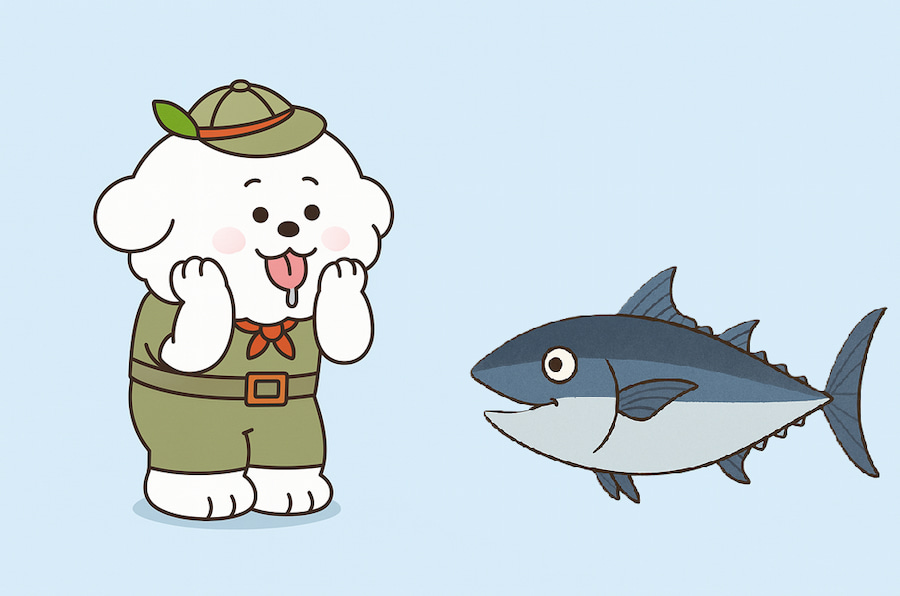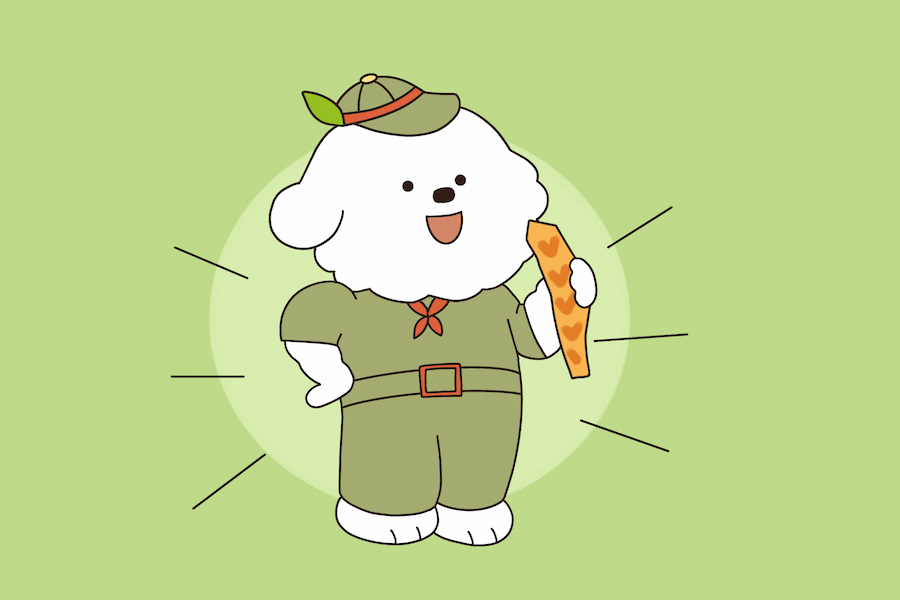Whether in sauces, soups, or salads, tomatoes are practically a mainstay in every kitchen around the globe; but, have you ever paused to consider can dogs eat tomatoes? Although tomatoes are not intrinsically poisonous to dogs, there are particular factors to consider before presenting them to your animal friend.
Focusing on key topics like whether can dogs eat tomatoes raw or can dogs eat tomatoes cooked and how different forms of tomatoes might influence their health, I will let you all in on whether tomatoes for dogs are safe in this blog. We’ll address all of your questions and also equip you with knowledge regarding whether dogs can have tomato soup and the care you should take while giving any sort of tomato to your dog.
Apart from investigating the health advantages of tomatoes for dogs, we’ll also talk about feeding your dog new foods. This article will cover all you need to know from knowing how many tomatoes a dog can eat to the best ways to present them—cherry tomatoes or another variety. Join us as we reveal the truth about dogs and tomatoes and let us lead you regarding appropriate feeding decisions.

Lee&Pol offers the best nutritious treats for your dog by combining tomatoes and dried pollock, thoroughly reboving salt and bones over 24 hours!
Can Dogs Eat Tomatoes?
Popular vegetables in many recipes and savored for their sweet and tart taste are tomatoes. But regarding feeding them to dogs, one wonders whether tomatoes are safe for them. There is more involved in the response than just yes or no. While other portions of the plant might be toxic, little amounts of ripe tomatoes can be safe for dogs. The level of ripeness of the tomato and the sections of the plant eaten define whether tomatoes are safe.
Tomatoes are members of the nightshade family of plants, also including potatoes and eggplants. Natural chemicals called solanine and tomatine abound in these plants, and in large doses they can be poisonous. Although ripe tomatoes have far less concentration of these poisons, they are still present in greater levels in green, unripe tomatoes as well as on plant stems and leaves.
In severe circumstances, dogs that eat a lot of these harmful components of the plant may show signs including gastrointestinal disturbance, drooling, disorientation, muscular weakness, or even heart problems.

But, given in moderation, ripe red tomatoes are far safer and a delight that dogs can appreciate.
Can Dogs Eat Cherry Tomatoes?
When completely ripe, cherry tomatoes are generally safe for dogs to eat, much as bigger tomatoes are. Like their larger cousins, these bite-sized tomatoes are high in vitamins and minerals, but they also raise some other issues.

Cherry tomatoes are smaller, hence dogs—especially smaller breeds—can readily take them whole, creating a choking hazard.
Make sure cherry tomatoes that you are giving to your dog is washed, ripe, clear of stalks and leaves. If you have a smaller dog specifically, you can cut them into smaller bits to avoid choking. Remember always that moderation is still the secret since even too many ripe cherry tomatoes might aggravate digestive problems because of their inherent acidity.
Is Tomato Good for Dogs?
Once it is clear that, under certain conditions, yes, dogs can eat tomatoes, pet owners naturally wonder whether tomatoes are good for dogs. Although tomatoes have some possible health advantages, they should be viewed more as a treat than a consistent component of your dog’s diet. Low in calories but high in vitamins A and C, fiber, and antioxidants—which might help a dog’s general health—tomatoes also include elements that might be harmful to dogs.
Though some of these nutrients could be helpful, tomatoes lack all the vital elements dogs need to survive. They should thus never substitute a well-balanced dog food diet. Rather, think of tomatoes as a lighthearted, nutrient-dense snack you might periodically offer to help your dog stay healthy.
High in Nutrients
Excellent sources of nutrients and vitamins, tomatoes help a dog stay healthy generally. The antioxidants, and vitamin C supports the immune system and therefore helps the body fight disease and infection. Vitamin A keeps skin in the best condition and helps good vision.
Lycopene
Among the most essential substances of tomatoes is lycopene, a powerful antioxidant that is well-known to minimize the risk of multiple long-term conditions. Lycopene promotes cellular health and may help dogs have less chances of developing heart disease or cancer. It has been shown to combat oxidative stress, a condition which comes from free radical damage to cells triggering inflammation and chronic disease.
Fiber for Digestive Health
Rich in fiber, tomatoes are absolutely vital for maintaining digestive health. In dogs, a little tomato can help control bowel motions and avoid constipation.

Still, it’s wise to keep quantities modest since too much fiber from overfeeding tomatoes could cause indigestion or diarrhea.
Low-Calorie
Tomatoes can be a nice low-calorie snack for dogs on a calorie-restricted diet or those who have weight control concerns, especially for obese dogs. Dogs that need to lose a few pounds would find them to be a great alternative since they offer a taste and nutrient explosion without adding too many calories.
Hydration
Tomatoes are largely water-based, hence they can help your dog stay hydrated—especially in hot summer months. Though tomato’s increased moisture will keep your dog hydrated, especially if your dog is suffering from dehydration or need extra fluid boost, they shouldn’t substitute water.
Although these benefits can be alluring, it’s also crucial to keep in mind that too many tomatoes or exposure to unripe tomatoes and the plant itself can negate these benefits, therefore creating certain health risks.

Lee&Pol develops treats that enhance your dog’s health by combining tomatoes with dried pollock, supplementing essential nutrients like omega-3 fatty acid, protein, and calcium!
How to Feed Tomatoes to Dogs?
Knowing how to present tomatoes to your dog helps you avoid any possible risks from including them in its diet.
Avoid Unripe Tomatoes
Although ripe tomatoes are usually healthy for dogs in moderation, a chemical called tomatine and solanine—found in larger proportions in green tomatoes—starts to cause trouble. If you feed unripe tomatoes or let your dog nibble on the plant, you run risk of tomatine poisoning.

Dogs suffering from tomatine toxicity could exhibit vomiting, diarrhea, lethargy, drooling, weakness in muscles, and irregular heart rate.
Remove Leaves and Stems
Leaves and stems also contain high levels of solanine and tomatine, just like unripe tomatoes. Therefore, always be sure to remove the tomato tops when giving tomatoes to your dog.
Introduce Tomatoes Gradually
Start with a little quantity if your dog has never tasted tomatoes before to make sure they won’t respond negatively. Certain dogs could be sensitive to tomato acidity, which would lead to stomach problems.
Always monitor your dog for any signs of gastrointestinal distress, such as vomiting or diarrhea, especially when introducing a new food like tomatoes.

And, before you offer tomatoes, visit your veterinarian if you have questions, especially about dogs with ailments like kidney disease or acid reflux.
Consider the Dog’s Age
Senior dogs and puppies might sport more delicate digestive tracts than dogs that are adults. For these groups, owners need to be mindful when introducing any new food, including tomatoes, to avoid nutritional deficiencies or digestive disturbance.
Monitor for Allergies
Though rare, some dogs may have tomato allergies. If you observe any symptoms of an allergic reaction—such as hives, itching, or swelling—stop feeding tomatoes right away once you notice this and see your veterinarian.
Watch for Sugar Content
One must be moderate. Although fresh tomatoes are naturally low in sugar, some dogs may have dietary restrictions that limit sugar intake, especially dogs with conditions like diabetes. In such cases, it’s crucial to limit tomatoes as they still contain natural sugars.
Cutting into Small Pieces
Cut fresh tomatoes into tiny, bite-sized bits if you are giving them to your dog. Particularly with smaller dogs, this guarantees they are easy to eat and reduces the likelihood of choking. Including a few little bits of tomatoes into your dog’s usual diet will help you to see how they react.
Limit Quantity
One must be moderate. Although ripe tomatoes are normally healthy, their acidity can cause digestive problems even with too little. Are raw tomatoes in great amounts something dogs might eat? No, even raw tomatoes consumed too much can cause diarrhea or stomach.
Avoid Toxic Ingredients in Processed Tomato Products
Many times, commercially made tomato products include dangerous chemicals. Are tomato sauce or soup something dogs might eat? As was already said, sauces, soups, and even ketchup can have elements like garlic, onions, and sugar, all of which dogs should not eat. To cut these hazards, stick to fresh, simple tomatoes.
By following these precautions, you can securely present tomatoes to your dog as a sporadic treat, guaranteeing their enjoyment of advantages, free from any possible risk.

Lee&Pol carefully selects ripe red tomatoes, removes the leaves and stems, and freeze-dries them to provide a safe treat for your dog!
How Much Tomato Can a Dog Eat?
When it comes to feeding dogs tomatoes, regulation of amounts is absolutely vital. While tiny amounts of ripe tomatoes are healthy, overfeeding them might lead to health problems. Generally speaking, tomatoes should account for no more than 10% of your dog’s whole diet and should always be presented as a treat rather than a mainstay.
Here are some guidelines to accurately feed tomatoes to dogs as per their size and age.
Small Dogs
Small age dogs that weigh between 15 to 30 pounds, should have no more than 1-2 small slices of ripe tomato, or up to two ½-inch cubes of tomato occasionally. Examples of some of these dogs are Yorkies, Beagles, and Miniature American Shepherds.
Medium Dogs
Medium age dogs that weigh between 31 to 50 pounds, can handle about 2-3 slices, or up to four ½-inch cubes of tomato daily, but it is still recommended to keep tomatoes as an occasional treat. Examples of these dogs include Basset Hounds, Border Collies, and Australian Cattle Dogs.
Large Dogs
Between 51 to 90 pound all grown canines could be able to eat three to four slices, or up to four or five ½-inch tomato cubes. Although they may handle a little more, tomatoes should still only make up a modest portion of their diet—no more than 10% daily. These dogs include Labrador Retrievers, German Shepherds, Pit Bulls, etc.
Conclusion
In essence, yes, dogs can eat tomatoes; but, only in moderation and with some thoughtful consideration. Dogs can only eat ripe tomatoes. While other parts of the plant, including the stems, and leaves contain hazardous compounds, ripe tomatoes are bursting in vitamins A and C, fiber, and antioxidants.
Always present tomatoes directly to your dog, without any sauces or seasonings. Another vital step is to closely observe your dog for any possible responses including allergy signs, diarrhea, or vomiting. Tomatoes can be a low-calorie, healthy treat that provides your dog some variation in its diet if used correctly.
Following these rules and keeping quantities low will help you to enjoy the peace of mind that arises from giving your dog a safe, nutrient-dense snack.
FAQ
Yes, dogs can eat tomato seeds in small amounts, but eating in large quantities may cause digestive issues. Always ensure the tomato is ripe and avoid leaves or stems.
Yes, dogs can eat tomato skin in moderation, as it’s not toxic. However, it’s best to ensure the tomato is ripe and free from any harmful additives or sauces.
Yes, dogs can have small amounts of pure tomato juice, but avoid any with added salt, sugar, or harmful ingredients like onion or garlic. Always ensure it’s made from ripe tomatoes.
Although simple tomato sauce free of additives might not be dangerous, many store-bought sauces include dangerous components, hence it’s recommended to avoid offering your dog any kind of tomato sauce.
It’s better to avoid most commercial tomato soups completely as most of them have strong amounts of salt or other ingredients that can be harmful to your dog.



